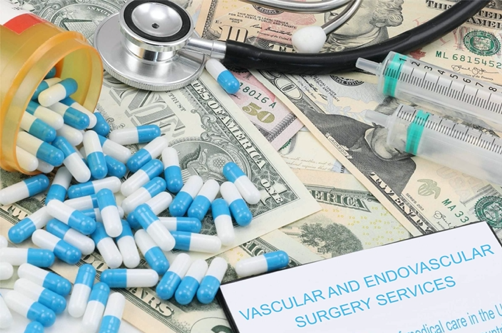What are the different types of vascular surgeries? Vascular surgery specializes in surgical procedures which focus on the vascular system like blood vessels and the lymphatic system. The lymphatic system involves moving white blood cells fighting infections through the body.
Vascular surgeons, under normal circumstances, don’t perform procedures that involve the brain or heart.

(Source)
Apart from performing surgical procedures, vascular surgeons also focus on lifestyle modifications as well as providing medications for individuals who have vascular diseases.
These surgeons are MDs and DOs who have advanced training in diagnosing, preventing, and treating blood vessels related problems and any vascular-related diseases.
Vascular Tests
Before assigning any surgical procedures to their patients, vascular surgeons initially require having vascular tests to essentially assess the condition of blood vessels and diagnose if the patient is eligible for surgery. Some vascular tests include:
Angiogram
Surgeons use an angiogram to diagnose any arterial blockages that may occur in patients and use vascular imaging procedures that employ the use of X-Rays with iodine contrasting.
Computed Tomography Angiography (CTA) and MRA (Magnetic Resonance Angiography)
Surgeons use these vascular tests to generate three dimensional pictures of blood vessels using highly advanced imaging technology.
Carotid Duplex
Doctors use this type of vascular test to measure the blood flow in arteries and essentially visualize any blockage in arteries through the use of ultrasounds.
Vascular Surgeries
Vascular surgeons are responsible for performing a number of different surgical procedures that require complex skills and advanced training, and specialization in vascular-related diseases. The surgical procedures could differ, with some being done traditionally with open incisions. However, others are done with an endovascular procedure, which is done inside the blood vessel. It requires using tiny incisions and small, flexible catheters.
Angioplasty
Vascular surgeons use this minimally invasive procedure to open a blocked artery to restore blood flow. This type of procedure involves the use of a device like a balloon or a stent.
Cryoplasty
This procedure closely resembles that of angioplasty in that it requires using a balloon catheter inserted into the blocked artery, which fixes any impediment within the blood vessel.
As the catheter reaches the blocked artery where there is obstruction of blood flow, it uses nitrous oxide, which causes the balloon to inflate and eventually freeze the tissue surrounding the artery.
This type of surgery treats vascular diseases like Peripheral Arterial Disease (PAD).
Vascular Bypass
This procedure requires using surgery to redirect the blood vessels in an effort to prevent any hindrance of blood flow around a blockage.
Carotid endarterectomy
Surgeons use this type of surgery under circumstances when they need to open a carotid artery or remove atherosclerosis. This is normally done to prevent strokes from happening.
Dialysis Access
Vascular surgeons use this type of procedure for patients with failing kidneys. It requires dialysis treatment by essentially accessing a blood vessel that allows the blood to travel from soft tubes to the dialysis machine. This machine cleans the blood when it is passed through a filter known as a dialyzer.
Open Abdominal Aortic Surgery
This type of surgical procedure entails using an abdominal incision which helps give access to the abdominal aorta. In the event that the patient has an aneurism, surgeons open the aneurism and insert a fabric graft into the ends of the aorta, which is then closed over the graft. Surgeons treating patients with a blockage in the aorta sew a graft in the aorta to redirect the flow of blood.
Ambulatory Phlebectomy
This kind of surgical procedure uses stab incisions to remove superficial varicose veins. The incisions are minimally invasive and are closed with a steri striped bandage. Surgeons normally use Ambulatory Phlebectomy for larger veins.
Types of Vascular Surgeries: Contact Dr. Chideckel NYC Vascular Expert
Please contact Vascular Surgery and Vein Center to explore the various treatment options we offer according to your needs. Specializing in the treatment of vascular disease, Dr. Norman Chideckel offers a wide range of services which include vascular surgical treatments.
Dr. Chideckel and his staff take the time to cater to each individual patient’s concerns that they may have before undergoing treatment. Contact us to book an appointment today.
Vascular Surgery & Vein Center
Dr. Norman Chideckel
108 East 96th Street
New York, NY 10128
212-993-6133


